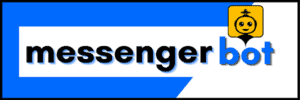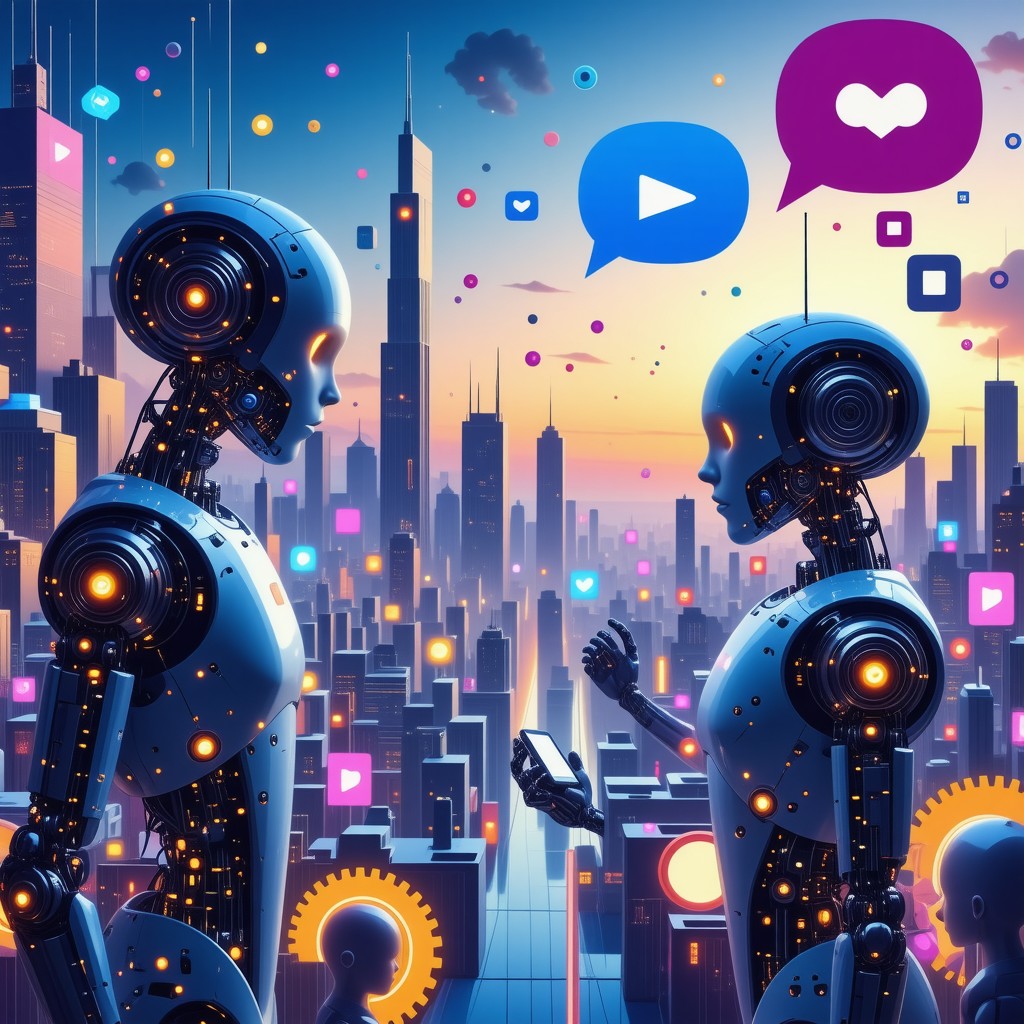Key Takeaways Facebook Messenger bots enhance customer engagement through automated responses, ensuring 24/7 availability for user inquiries. These bots utilize AI and NLP to provide personalized experiences, improving customer satisfaction and loyalty. Implementing a Facebook Messenger bot for business can lead to significant cost savings and increased operational efficiency. Understanding how to identify bots on Messenger helps ensure genuine interactions, protecting users from spam and misinformation. Free options for Messenger bots allow businesses to explore automation without upfront costs, making it accessible for startups. Legal and ethical considerations are crucial; businesses must comply with regulations to maintain user trust and data privacy. Future trends indicate increased AI capabilities and integration across platforms, enhancing the functionality of Facebook Messenger bots. Welcome to our comprehensive guide on the Facebook Messenger robot, where we delve into the fascinating world of Facebook Messenger bots and their transformative impact on business communication. In this article, we will explore what a Facebook Messenger bot is, shedding light on the basics of Facebook Messenger AI and how these bots are revolutionizing interactions between businesses and customers. You’ll learn how to identify if you’re chatting with a bot, and we’ll provide a step-by-step guide on how to turn off Meta AI on Messenger if you choose to do so. Additionally, we’ll discuss the costs associated with implementing a Facebook Messenger bot for business and explore free options available for those looking to get started. Legal considerations and ethical implications surrounding Facebook Messenger bots will also be covered, ensuring you have a well-rounded understanding of this technology. Finally, we’ll look ahead at the innovative applications of the Facebook Messenger robot and what the future holds for these AI-driven tools. Join us as we navigate the intricacies of Facebook Messenger bots and unlock the potential they hold for enhancing communication in the digital age. What is a Facebook Messenger bot? A Facebook Messenger bot is an advanced automated software application designed to facilitate interactions between businesses and users through the Facebook Messenger platform. These bots leverage artificial intelligence (AI) and natural language processing (NLP) to understand and respond to customer inquiries in real-time, enhancing user engagement and streamlining customer service operations. Understanding the Basics of Facebook Messenger AI Key features of Facebook Messenger bots include: Automated Responses: Bots can provide instant replies to frequently asked questions, reducing wait times for customers and improving overall satisfaction. 24/7 Availability: Unlike human agents, Messenger bots operate around the clock, ensuring that users can receive assistance at any time, which is crucial for businesses with a global customer base. Personalization: By utilizing user data and interaction history, bots can tailor responses to individual preferences, creating a more personalized experience for users. Integration with Business Tools: Facebook Messenger bots can be integrated with various customer relationship management (CRM) systems and e-commerce platforms, allowing for seamless transaction processing and customer management. Lead Generation and Sales: Bots can engage users in conversations that guide them through the sales funnel, helping businesses capture leads and drive conversions effectively. According to a report by Business Insider, the use of chatbots in customer service is expected to save businesses over $8 billion annually by 2022, highlighting their growing importance in digital marketing strategies. In summary, Facebook Messenger bots represent a powerful tool for businesses looking to enhance customer interaction, improve service efficiency, and drive sales through automated communication on one of the world’s most popular messaging platforms. The Role of Facebook Messenger Bots in Business Communication Facebook Messenger bots play a crucial role in modern business communication by providing an efficient and effective means of engaging with customers. They help streamline interactions, allowing businesses to respond to inquiries quickly and accurately. Here are some key aspects of their role: Enhanced Customer Support: By automating responses to common questions, businesses can significantly reduce the workload on human agents, allowing them to focus on more complex issues. Increased Engagement: Messenger bots can initiate conversations and keep users engaged through personalized interactions, which can lead to higher customer satisfaction and loyalty. Data Collection and Analysis: Bots can gather valuable data from user interactions, providing insights into customer preferences and behaviors that can inform marketing strategies. Cost Efficiency: Implementing a Facebook Messenger bot can lead to significant cost savings by reducing the need for extensive customer service teams and minimizing response times. As businesses increasingly adopt digital communication strategies, the integration of Facebook Messenger bots becomes essential for maintaining competitive advantage and ensuring customer satisfaction. How to tell if someone is a bot on Facebook Messenger? Identifying whether someone is a bot on Facebook Messenger can be crucial for ensuring genuine interactions. Here are key indicators to help you discern bot activity: Generic Comments: Bots often generate vague or irrelevant responses that do not directly address the conversation. If replies seem automated or lack context, this could indicate bot behavior. Lacking Profile Details: Many bots have incomplete profiles. Look for generic profile images, minimal personal information, or a lack of posts and interactions that typically characterize real users. Repetitive Responses: Bots may provide the same answer to different questions or repeat phrases frequently. If the conversation feels scripted or lacks variation, it may be a bot. Delayed Responses: While humans can take time to reply, bots often respond almost instantly. If you notice a pattern of quick replies, especially during odd hours, it could be a sign of automation. Unusual Language Patterns: Bots may struggle with natural language nuances. Look for awkward phrasing, grammatical errors, or responses that seem out of place in the context of the conversation. Limited Engagement: Bots typically do not engage in deeper conversations. If the interaction feels shallow or lacks follow-up questions, it may indicate a bot. Links to External Sites: Bots often share links to external sites or promotions without context. If a user frequently sends unsolicited links, be cautious. For further insights, research from the Pew Research Center highlights the increasing sophistication of bots on social media platforms, emphasizing the importance of vigilance in online interactions. Understanding these signs can help you navigate conversations on Facebook Messenger more effectively. Common Traits of Facebook Messenger Bot Interactions When interacting with a Facebook Messenger bot, several common traits can help you identify its presence. These traits often stem from the underlying technology that powers these bots, such as Facebook Messenger AI and various programming languages like Python or Node.js. Structured Responses: Bots typically provide structured and predictable responses, often following a script. This can lead to conversations that feel mechanical rather than organic. Quick Turnaround: As mentioned earlier, bots respond almost instantly, which can be a giveaway. If you notice a user replying faster than humanly possible, it’s likely a bot. Limited Contextual Understanding: Bots may struggle with context, leading to misunderstandings or irrelevant answers. If the conversation veers off-topic frequently, it may be due to bot limitations. Promotional Content: Many bots are programmed to promote products or services. If you receive unsolicited promotional messages, it’s a strong indicator of bot activity. By recognizing these common traits, you can better differentiate between human and bot interactions on Facebook Messenger, ensuring a more authentic communication experience. How do I turn off Meta AI on Messenger? Disabling Meta AI on Messenger is a straightforward process that allows you to regain control over your messaging experience. Follow these steps to turn off the Meta AI features: Open the Messenger App: Launch the Messenger application on your device. Access Settings: Tap on your profile picture located in the top left corner to access the settings menu. Select Privacy: Scroll down and select the “Privacy” option. Manage AI Features: Look for the section labeled “AI” or “Meta AI.” Here, you will find options related to the AI features integrated into Messenger. Disable Meta AI: Toggle off the switch next to “Meta AI” or any related features you wish to disable. This action will stop the AI from providing suggestions or interacting with your messages. Confirm Changes: Ensure that the changes are saved, and you may want to restart the app to confirm that Meta AI is no longer active. For further information, you can refer to the official Meta Help Center, which provides detailed guidance on managing settings within Messenger. Troubleshooting Common Issues with Facebook Messenger AI Even after disabling Meta AI, you may encounter some common issues that can affect your Messenger experience. Here are a few troubleshooting tips: AI Suggestions Still Appear: If you continue to see AI suggestions, ensure that you have toggled off all related settings in the Privacy menu. Restarting the app can also help refresh your settings. Notifications from AI Features: If you receive notifications related to AI features, check your notification settings within the Messenger app and adjust them accordingly. Performance Issues: If Messenger is lagging or crashing after disabling Meta AI, consider clearing the app cache or reinstalling the app to improve performance. For more detailed troubleshooting, you can explore the Messenger Bot Tutorials for additional support and guidance. How much does a Messenger bot cost? The cost of a Messenger bot can vary significantly based on several factors, including the complexity of the bot, the platform used, and the level of customization required. Here’s a detailed breakdown: Free Options: Many platforms offer basic Messenger bot functionalities for free. These typically include simple automated responses and basic integrations. Examples include Chatfuel and ManyChat, which allow users to create bots without coding knowledge. Paid Plans: For more advanced features, such as AI capabilities, analytics, and integrations with other services, costs can range from $10 to $300 per month. Platforms like MobileMonkey and Landbot offer tiered pricing based on the number of users and features. Custom Development: If you require a highly customized Messenger bot tailored to specific business needs, the cost can escalate significantly. Custom-built bots can range from $3,000 to over $100,000, depending on the complexity and the development team’s rates. Ongoing Maintenance: It’s essential to consider ongoing costs for maintenance and updates, which can add an additional 15-20% of the initial development cost annually. Additional Costs: Depending on your bot’s functionality, you may incur costs for hosting, third-party integrations, and marketing to promote your bot. For businesses looking to implement a Messenger bot, it’s crucial to assess your specific needs and budget to choose the right solution. According to a report by Business Insider, the chatbot market is expected to grow significantly, highlighting the increasing importance of these tools in customer engagement strategies (Business Insider, 2023). Exploring the Costs of Facebook Messenger Bots for Business When considering a Facebook Messenger bot for business, understanding the financial implications is vital. The investment in a Messenger bot can lead to substantial returns through enhanced customer engagement and streamlined communication. Here are key factors to consider: Initial Setup Costs: Depending on whether you choose a free platform or opt for a custom solution, initial costs can vary widely. Free options are great for startups, while established businesses may benefit from investing in more sophisticated bots. Feature Set: The more features you want—like AI-driven responses or integration with CRM systems—the higher the cost. Assess which features are essential for your business needs. Scalability: As your business grows, so will your messaging needs. Choose a platform that allows for easy scaling without incurring exorbitant costs. Ultimately, the right Facebook Messenger bot can enhance your business communication, making it a worthwhile investment. Free Options: Utilizing Facebook Messenger Bot Free Services For those just starting or looking to test the waters, free options for Facebook Messenger bots provide an excellent entry point. These services typically offer: Basic Automation: Simple automated responses to common inquiries, which can significantly reduce response times. User-Friendly Interfaces: Many platforms provide drag-and-drop builders, making it easy to create a bot without technical expertise. Community Support: Platforms like ManyChat and Chatfuel have active communities and tutorials that can help you get started. By leveraging these free services, businesses can experiment with Messenger bots and determine their effectiveness before committing to a paid plan. Are Facebook Bots Illegal? The legality of Facebook bots is a nuanced topic that varies by jurisdiction and the specific use case of the bot. While there are no overarching laws that categorically ban the use of bots on platforms like Facebook, certain types of bots, particularly spam bots, are illegal under various anti-spam laws. Legal Considerations Surrounding Facebook Messenger Bots Spam Bots: These are automated programs that send unsolicited messages in bulk. Many countries, including the United States under the CAN-SPAM Act and the European Union with the General Data Protection Regulation (GDPR), have strict regulations against sending unsolicited communications. Violating these laws can lead to significant penalties. Chatbots and Messenger Bots: Unlike spam bots, chatbots designed for customer service or engagement on platforms like Facebook Messenger are generally legal and widely used in digital marketing. These bots can enhance user experience by providing instant responses to inquiries, thus improving customer satisfaction. However, businesses must ensure compliance with Facebook’s policies and local regulations regarding user consent and data privacy. Compliance and Best Practices: To operate legally, businesses should: Obtain explicit consent from users before sending messages. Provide clear opt-out options for users. Ensure that the bot’s functionality aligns with Facebook’s terms of service. Conclusion: While the use of Facebook bots is not inherently illegal, it is crucial to navigate the legal landscape carefully, particularly concerning spam regulations and user privacy. For more detailed guidance, businesses can refer to resources from the Federal Trade Commission (FTC) and the European Commission regarding digital communications and data protection. Ethical Implications of Using Facebook Messenger Bots The ethical use of Facebook Messenger bots extends beyond mere legality. Businesses must consider the impact of their bots on user experience and trust. Here are some key ethical considerations: Transparency: Users should be informed when they are interacting with a bot rather than a human. Clear communication fosters trust and enhances user experience. Data Privacy: Protecting user data is paramount. Businesses must implement robust data protection measures and comply with privacy regulations to safeguard user information. Responsiveness: Bots should be programmed to handle inquiries effectively and escalate issues to human agents when necessary. This ensures that users receive the support they need without frustration. Continuous Improvement: Regularly updating and refining bot interactions based on user feedback can enhance the overall effectiveness and ethical standing of the bot. By adhering to these ethical guidelines, businesses can leverage Facebook Messenger bots responsibly, ensuring a positive experience for users while maintaining compliance with legal standards. How to tell if a bot is messaging you? Identifying whether a bot is messaging you can be crucial for maintaining your online security and privacy. Here are key indicators to help you spot a bot: Response Patterns: Bots often respond instantly or with minimal delay, lacking the natural pauses typical of human conversation. If you notice a rapid response that doesn’t align with the complexity of your question, it may be a bot. Message Structure: Bots frequently use generic phrases or repetitive language. If the responses seem overly scripted or lack personalization, this could indicate a bot. Lack of Typing Indicators: In messaging platforms, bots may not show the “typing…” indicator, or it may appear inconsistently. Unlike humans, bots can send messages without the typical typing delay. Urgency and Pressure: Bots often create a sense of urgency, prompting you to click links, share personal information, or make immediate decisions. Be wary of messages that promise rewards or threaten negative consequences if you don’t act quickly. Inconsistent Context: If the conversation suddenly shifts topics or the bot fails to acknowledge previous messages, it’s likely a bot. Human interactions typically maintain context and flow. Links and Attachments: Bots may send unsolicited links or attachments. Always be cautious about clicking on links from unknown sources, as they may lead to phishing sites or malware. Limited Understanding: Bots struggle with nuanced questions or complex topics. If the responses seem off-topic or fail to address your inquiries adequately, this could indicate a bot. For further reading on identifying bots and enhancing your online safety, consider resources from cybersecurity experts like the Federal Trade Commission (FTC) and reputable tech blogs such as Wired or TechCrunch. Comparing Human vs. Facebook Messenger Bot Conversations Understanding the differences between human and Facebook Messenger bot conversations can help you navigate your interactions more effectively. Here are some key distinctions: Personalization: Human conversations often include personalized touches, such as referencing past interactions or using the recipient’s name. In contrast, Facebook Messenger bots typically rely on pre-set responses that may lack personalization. Emotional Intelligence: Humans can pick up on emotional cues and respond empathetically. Facebook Messenger bots, while increasingly sophisticated, may struggle to interpret emotions accurately, leading to responses that feel robotic or out of context. Complexity of Responses: Humans can engage in nuanced discussions and provide detailed answers. Facebook Messenger bots may falter when faced with complex questions, often providing generic or irrelevant responses. Engagement Style: Human conversations tend to be more dynamic and fluid, with back-and-forth exchanges that build rapport. Facebook Messenger bots may follow a scripted path, limiting the depth of interaction. By recognizing these differences, you can better assess whether you’re interacting with a Facebook Messenger bot or a human, enhancing your overall communication experience. Facebook Messenger Robot Applications and Innovations The landscape of digital communication is rapidly evolving, and the Facebook Messenger robot is at the forefront of this transformation. These bots are not just tools for automation; they represent a shift in how businesses interact with customers, leveraging artificial intelligence to enhance user experiences. Understanding the applications and innovations surrounding Facebook Messenger bots can provide valuable insights into their potential impact on business communication. Exploring the Facebook Messenger Robot App and Its Features The Facebook Messenger robot app is designed to streamline communication and improve customer engagement. Key features include: Automated Customer Support: Bots can handle inquiries 24/7, providing instant responses to frequently asked questions, which significantly reduces response time and enhances customer satisfaction. Personalized Marketing: By analyzing user interactions, these bots can tailor marketing messages to individual preferences, increasing the effectiveness of campaigns. Integration with E-Commerce: Many businesses utilize Facebook Messenger bots to facilitate transactions directly within the app, allowing customers to browse products and make purchases seamlessly. Data Collection and Analytics: Bots can gather valuable data on customer behavior, enabling businesses to refine their strategies based on real-time insights. For those interested in developing their own Facebook Messenger bot, resources like Messenger Bot Tutorials provide step-by-step guidance on setting up and optimizing bots for various applications. The Future of Facebook Messenger Bots: Trends and Predictions As technology continues to advance, the future of Facebook Messenger bots looks promising. Here are some trends and predictions shaping the industry: Increased AI Capabilities: Future bots will likely incorporate more sophisticated AI, enabling them to understand context and sentiment better, leading to more human-like interactions. Greater Integration with Other Platforms: Expect to see Facebook Messenger bots integrating with various platforms beyond Facebook, enhancing their utility across different digital environments. Focus on Privacy and Security: As data privacy concerns grow, future bots will need to prioritize secure interactions, ensuring user data is protected. Expansion of Multilingual Support: With a global audience, the demand for multilingual capabilities will increase, allowing businesses to communicate effectively with diverse customer bases. For businesses looking to stay ahead, exploring options like Messenger Bot Features can provide insights into how to leverage these trends effectively.
Mastering Dialogflow AI: Jouw Uitgebreide Gids voor het Bouwen van Effectieve Chatbots en het Begrijpen van de Voordelen voor Beginners en Verder
Belangrijkste Punten Ontgrendel de Kracht van Dialogflow AI: Beheers de basisprincipes van het bouwen van effectieve chatbots met Dialogflow AI, waardoor het toegankelijk is voor zowel beginners als ervaren ontwikkelaars. Natuurlijke Taalverwerking (NLP): Maak gebruik van geavanceerde NLP-mogelijkheden om...




